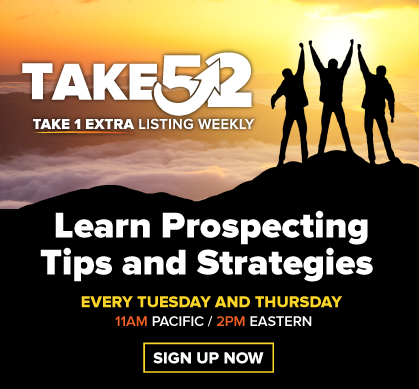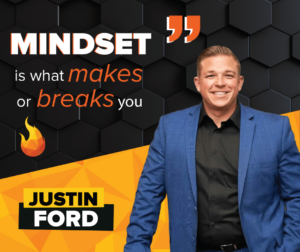
The Marketing Journey-Part 1: Business Objectives
Brand marketing is often a mystery to many small business owners.
This is particularly true for real estate agents who seem to believe that “selling harder” is always the answer to success. To be sure, nobody discounts the value of selling harder, using advanced technology such as Vulcan 7 or Espresso Agent to maximize lead generation and CRM efforts. But here’s the catch: while you may be using the best tools to become a selling machine, so are many of your competitors. The question then becomes: how do you differentiate yourself in the eyes of prospective buyers and sellers? The answer: marketing and branding.
This is a first in a six-part series we’re calling The Marketing Journey. Regardless of your business model (sole agent, agent team, brokerage), this series is designed to help you navigate the sometimes choppy waters between business goals and marketing execution.
Over the next six weeks, we will look at the strategic framework for building your brand. This framework remains the same regardless of the size of your business. The biggest variables are, of course, the output which is driven by budget to a large extent. Here are the six steps of the strategic marketing journey:

A strong brand marketing program begins with clearly articulated and realistic business objectives.
In a recent Annual Staples National Small Business Survey, more than 80% of the 3,000+ small businesses surveyed said they don’t keep track of their business objectives with 77% saying they have not achieved their vision for their company.
LONG-TERM VISION
Small businesses often focus o the short-term; what we need to do today to keep the lights on. We don’t dismiss the important of short-term planning and will touch on this in a bit. However, it is important to consider your long-term vision, played out on a three-to-five year basis.
Long term goals are not strictly defined in purely financial terms. You may want to consider a variety of visionary objectives for your business, such as:
- Service: In addition to closing transactions, you may want to be identified for your exceptional customer service, something that can easily set you apart from your competitors.
- Community: Perhaps you want to define goals related to your involvement in your community through volunteer work or philanthropy
- Growth: You may consider what your business will look like in five years in terms of team members or perhaps expertise in a niche area of the business, such as luxury.
While we’re on this topic, have you defined the vision for your business? What do you want to be known for in three or five years?
SHORT TERM S.M.A.R.T. GOALS
Once you’ve done a little long-term dreaming you can turn your attention to how you’ll get there. This involves short-term goals and activities. Perhaps you can think about short-term goals in terms of making them S.M.A.R.T. goals:
- Specific: Do you have concrete, highly detailed business objectives/metrics against which to work?
- Measurable: Have you assigned specific values to your goals, such as % transaction growth from year to year?
- Action-oriented: Do you and your team know their exact roles toward achieving these goals?
- Realistic: Have you set goals that are challenging, but realistic with regard to current market dynamics and your competitive landscape?
- Time-specific: What are the time parameters for achieving your short-term goals?
The first, most important step to building a strong brand marketing presence is to define your business objectives. Do you have a long-term vision for your business? What are the steps you’ll take in the short-term to ensure your long-term success?
Next week, we will look how to create a marketing objective to address your business objectives.
This post originally appeared on radioanddigital.com

Doug Spak has over four decades of experience as an advertising copywriter, agency creative director, blogger, and content creator. He joined Vulcan7 as a Content Specialist in 2016. In addition to ongoing website copy refreshes, Doug has produced over 300 blog posts while developing content for Vulcan7’s social media platforms.
RECOMMENED ARTICLES
How Important is Neighborhood Search to Your Business?
We all know the old real estate adage: “Location, location,…
Read MoreHow to Maximize Productivity in Real Estate Prospecting
Top-performing real estate agents often think in terms of “production.” …
Read MoreThe Importance of Mindset in Real Estate Prospecting
“Mindset is what makes or breaks you,” says Justin Ford,…
Read More




